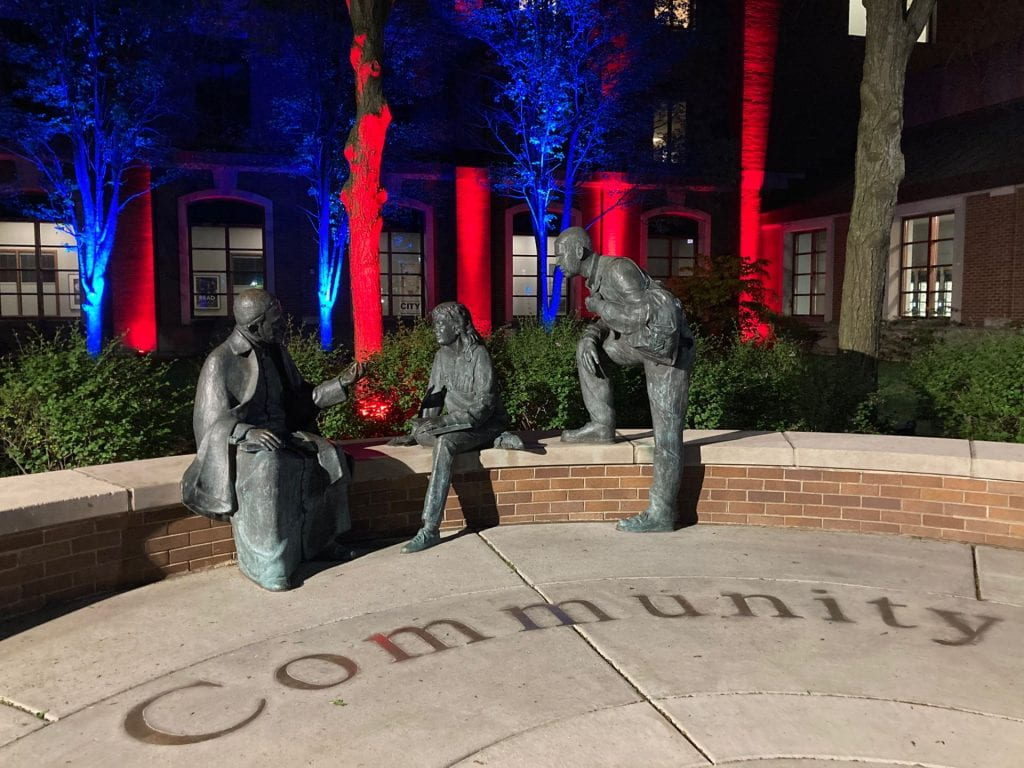Written By: Miranda Lukatch, Editor, Vincentian Studies Institute

Now that it is spring and we are amid graduation season, much advice will be given to those who are matriculating, particularly younger students. At this time of year, especially for graduating college students who are starting their careers, there’s an emphasis on forging ahead. For graduating high school students planning to attend college, picking a major is a looming decision, something that they may have already started working on when choosing a school. Graduation speakers talk a lot about having confidence and being adventurous, and they usually frame it in positive terms about how exciting it is to have all these choices ahead. What they often don’t talk about is how to handle the restlessness and discomfort that comes with uncertainty. It’s an issue that affects more than just the graduates—it can also apply to those sitting in the audience: the graduates’ parents and their parents’ peers who may also be at a fork in the road as they face empty nests and the challenges of middle age. These audience members might be looking back at this time in their own lives when it seemed like they had everything before them. They might desire to recapture that feeling and sense of possibility. Although at least the outward paths of their lives may appear to be set in terms of things like careers and family life, they might be facing different kinds of uncertainty, feeling that they have conflicting priorities and that whichever one they are attending to at the moment is not the one they would choose if they had a choice. They may feel dissatisfaction with those aspects of their lives that seem set and wonder how to do things differently.
The fact is that no single age group has a monopoly on the discomfort of uncertainty. The possibilities before us in youth may seem exhilarating, but it’s also disorienting not to have a structure to life. And for folks who are more established, the philosopher Kieran Setiya has noted that when we look back, we are not missing “a time when we could have everything” so much as “a time before we had to commit ourselves and thus confront our losses.”[i] The question is, what can we do about this?
We might try taking advice from Vincent de Paul. He once offered Louise de Marillac wise counsel when she was wrestling with uncertainty over the direction her life would take. From the perspective of his faith, he encouraged her to bear ambiguity and dissatisfaction patiently with grace, saying, “Try to live content among your reasons for discontent and always honor the inactivity and unknown condition of the Son of God. That is your center and what He asks of you for the present and for the future, forever.”[ii] Vincent was urging patience and an embrace of uncertainty almost as a holy time or a holy obligation because it was a time to listen for God’s voice and will. Viewed this way, uncertainty can be approached with hope and even gratitude. As Mission & Ministry’s own Mark Laboe has written, the chaos of uncertainty also contains “a creative energy … that can ultimately become transformative and life-giving.”[iii] The poet Rainer Maria Rilke offers what sounds like a more secular version of Vincent’s advice when he writes:
“Be patient towards all that is unresolved in your heart and to try to love the questions themselves like locked rooms, like books written in a foreign tongue. Do not now strive to uncover answers: they cannot be given you because you have not been able to live them. And what matters is to live everything. Live the questions for now. Perhaps then you will gradually, without noticing it, live your way into the answer.”[iv]
No matter where we are in life’s journey and what we are questioning, let us accept our uncertainty as a chance to develop more fully into the people we are called to be.
Reflection Questions
- What feels most uncertain about your life now? Can you recall a similar time of uncertainty? How can you draw lessons from that time that may help you face your uncertainty today?
- Can you locate the potential for growth within your uncertainty?
Reflection by: Miranda Lukatch, Editor, Vincentian Studies Institute
[i] Kieran Setiya, Midlife: A Philosophical Guide (Princeton University Press, 2018), 73.
[ii] Letter 29, “To Saint Louise,” [between 1626 and May 1629], CCD, 1:54. Available online at: https://via.library.depaul.edu/vincentian_ebooks/25/.
[iii] Mark Laboe, “What Anchors You … and Us?” The Way of Wisdom, January 6, 2025, https://blogs.depaul.edu/dmm/2025/01/05/what-anchors-you-and-us/.
[iv] Rainier Maria Rilke to Franz Xaver Kappus, July 16, 1903, in Letters to a Young Poet, trans. Charlie Louth (New York: Penguin Books, 2013), 24.



